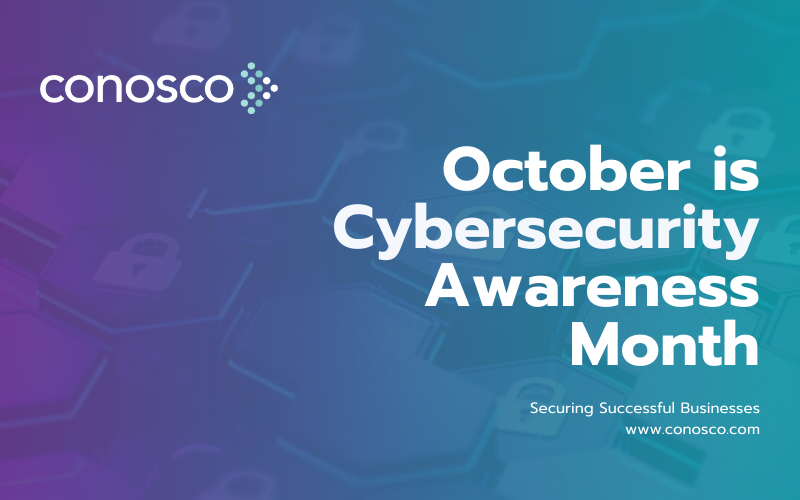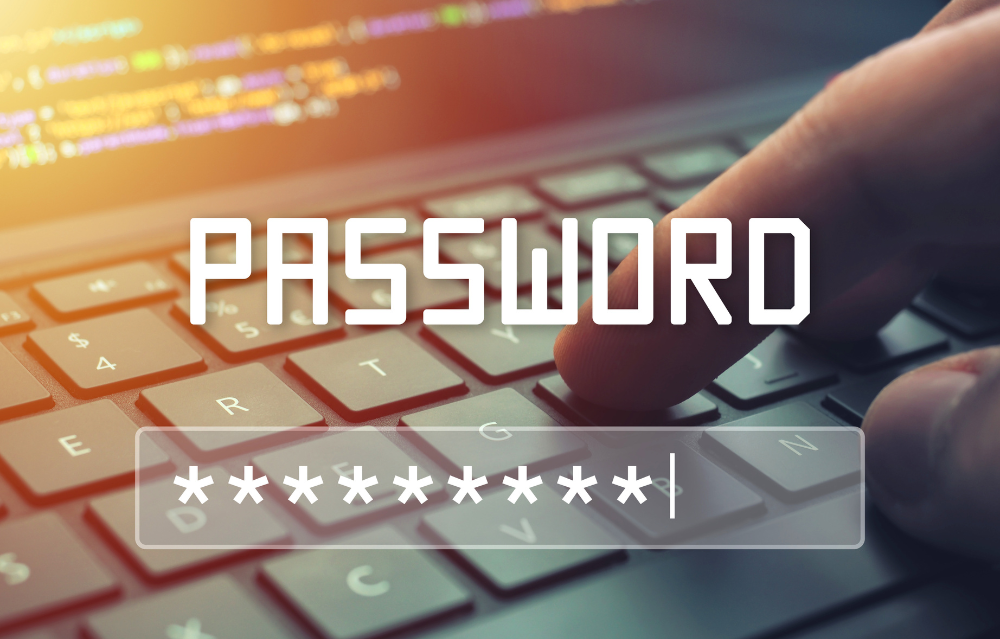October Cybersecurity Awareness: Protecting your business from the inside out
by Darren Ford on Oct 15, 2024

Cybersecurity is a central component of every business’s strategy. From securing internal networks to managing third-party risks, businesses constantly adapt to stay ahead of cyber threats. As BBC News reported, small businesses will absorb most of the hit being the easier targets. They are three times more likely to be attacked by cyber-criminals compared to large businesses. They can expect to face significant financial and operational losses from cyberattacks, often compounded by internal weaknesses like human error.
The importance of internal security
The Cyber Security Breaches Survey 2024 presents insights into cyber threats faced by UK businesses and charities. Half of UK businesses and around a third of charities reported experiencing some form of cyber attack in the last 12 months. These figures rise sharply for medium businesses (70%), large businesses (74%), and high-income charities (66%). Phishing attacks are the most common (84% of businesses and 83% of charities), followed by impersonation attempts (35% of businesses and 37% of charities) and malware (17% of businesses and 14% of charities). The most disruptive breaches cost businesses an average of £1,205, but for medium and large businesses, this figure rises to £10,830, and £460 for charities.
Internal threats include weak passwords, insecure file-sharing practices, and a lack of awareness about phishing tactics. According to a report by Verizon, various forms of human error accounts for 82% of data breaches, often resulting from lax security practices within the organisation.
Much of the cyber threats are relatively basic, and government guidance recommends businesses and charities use "cyber hygiene" measures for protection. Most organisations have adopted a variety of these, like updated malware protection, password policies, cloud backups, restricted admin rights, and network firewalls—used by at least seven in ten businesses and over half of charities. This year, businesses have seen a slight increase in the deployment of these controls, which shows we are moving in the right direction.
- Updated malware protection (83%, up from 76%)
- Restricted admin rights (73%, up from 67%)
- Network firewalls (75%, up from 66%)
- Phishing email procedures (54%, up from 48%).
Strengthen your business from within
Beyond having the right protective technologies, malware protection, email domain security (anti spoofing) and firewalls, there are a few more management practices and plans that you can put into place to protect yourself:
Access Control
Not all employees need access to every system. Implement role-based access control (RBAC) to restrict access to critical information and ensure employees only have the permissions necessary for their job.
Regular Audits
Conduct regular audits of your internal systems and processes to identify vulnerabilities and correct them before they can be exploited.
Incident Response Plans
Every business should have a plan for responding to cybersecurity incidents. Ensure your team knows who to contact, how to isolate the threat, and how to recover systems quickly.
Identity Protection Is Essential
Identity-based attacks surged in 2023, driven by stolen credentials that gave attackers easy access. Implement phishing-resistant multi-factor authentication (MFA), educate teams on social engineering, and employ tools that detect threats across identity, cloud, and endpoints. To protect against advanced threats like MFA bypass, SIM swapping, and API key theft, ensure continuous monitoring and threat hunting.
Enhance Response Efficiency
Hackers move fast—sometimes in as little as 2 minutes after a breach. Organisations need tools that help detect lateral movement quickly and efficiently. Managed detection and response solutions provide round-the-clock monitoring, allowing businesses to keep pace with evolving threats.
Build a Strong Cybersecurity Culture
Technology alone is not enough—users play a critical role. Promote user awareness through regular training on phishing and social engineering. Security teams should regularly run tabletop exercises to identify gaps in response strategies and refine their cybersecurity practices.
The 2024 NHS Cyberattack
In June 2024, the NHS fell victim to a ransomware attack that affected multiple hospitals across London, leading to cancelled surgeries and diverted emergency care. Investigations revealed that the attack exploited weaknesses in internal systems. This case underlines the importance of addressing basic internal security risks before they can be exploited. For businesses in highly regulated industries like healthcare, financial services, and legal, the impact of an attack can be particularly devastating, affecting not only the business’s bottom line but also its reputation and customer trust, and in this case, actually put lives at risk.
Take Action Now
The proportion of businesses seeking external cyber security guidance has declined since 2023. Notably, many organisations, including large ones, remain unaware of key government guidance such as the 10 Steps to Cyber Security or Cyber Essentials accreditation. Currently, only a relatively small number of organisations adhere to recognised standards.
In the past year, 41% of businesses and 39% of charities sought external advice, mainly from cyber security or IT consultants, which is a drop from 2023's 49% for businesses, while the number remains unchanged for charities.
Hopefully, this is demonstrating that businesses are better protected than they were a year ago, but the concern here is the speed at which malicious actors learn and execute. To safeguard your business, speak to, and get advice from the experts. Put your efforts into a focus on internal security measures: train your teams, restrict access, and conduct regular audits to ensure that your business is protected from within.
Ready to improve your internal defences?
Speak to the security experts today and take the next step towards securing your business from the inside out.
Explore how we can protect your business from cyber threats here in our Cybersecurity Services pages.
You May Also Like
These Related Stories

The Password Paradox: Navigating the Identity Crisis in Cybersecurity
What makes a perfect password? A unique set of characters, and only used only once? Does it have 36 characters? How abou …

Our continued commitment to quality management & information security
January 2025 is a momentous time for us. Following a thorough integrated audit, we have successfully renewed our ISO 900 …

Long read: what the BBC got right, and where leaders must push further
This long-form analysis responds to the BBC’s investigation, “The true cost of cyber attacks – and the business weak spo …


